In the face of so much doom and gloom, here are a bunch of positive environmental news stories from 2024.
In this article:
Climate Doomism & Positive Environmental News
The barrage of stories highlighting the dire consequences of climate change can leave many feeling overwhelmed, leading to a phenomenon known as climate doom and eco-anxiety.
The never-ending bad news takes an emotional toll. It makes many of us feel hopeless. How can we, as individuals, make a difference in the face of so much destruction? What we need is a beacon in the storm of all these alarming headlines.
Amidst the overwhelming tide of challenges, stories of innovation, community action, and significant strides toward sustainability serve as vital reminders that progress is possible. They not only offer a much-needed respite from the constant influx of grim updates, but also play a crucial role in fueling our collective motivation to forge ahead.
Positive environmental news acts as a powerful counterbalance, lightening the burden of climate anxiety by showcasing the capacity for human ingenuity and resilience. It’s these stories that remind us of our ability to enact change, inspire action, and bolster hope for a healthier planet.
In embracing and spreading positive news, we not only lift our spirits but also reinforce the belief that, together, we can and will build a more sustainable future.
Positive Environmental News 2024
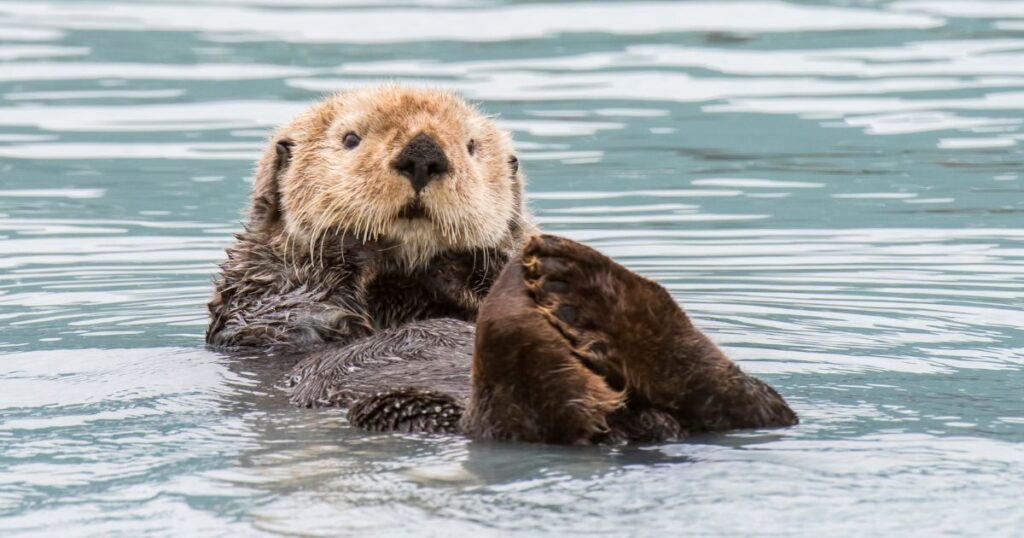
Positive Environmental News – December
Fuzzy protectors and animals returning home, the final month of 2024 has some heart-warming positive environmental news in store for us.
Adorable sea otters are protecting kelp forests
Sea otters are protecting kelp forests from purple sea urchins which feed on the kelp and destroy the fragile ecosystem.
Researchers have created a plastic that fully dissolves in seawater
Japanese researchers have developed a plastic that dissolves safely in seawater without leaving harmful microplastics behind.
1,000 endangered animals are returned to Madagascar
Nearly 1,000 trafficked lemurs and tortoises were returned to Madagascar from Thailand in a major anti-trafficking operations.

Positive Environment News – November
Climate lawsuits and new organisms, November’s positive environmental news is full of exciting movements and discoveries.
Los Angeles County sues PepsiCo and Coca-Cola for plastic pollution
The county accuses the competing soda companies of harming public health and the environment with their plastic bottles, and of intentionally deceiving consumers about their recyclability.
Largest known coral discovered near the Solomon Islands
The massive coral is visible from space, with a circumference of 183 metres, and is made up of a network of individual coral polyps that have been growing for 300 to 500 years.
Vancouver votes against homes heated by natural gas
The Vancouver City Council voted against national gas heating for new homes, preventing the reversal of the cities current climate-friendly practices. More than 140 people registered to speak at council this week and dozens protested in front of city hall ahead of the vote.
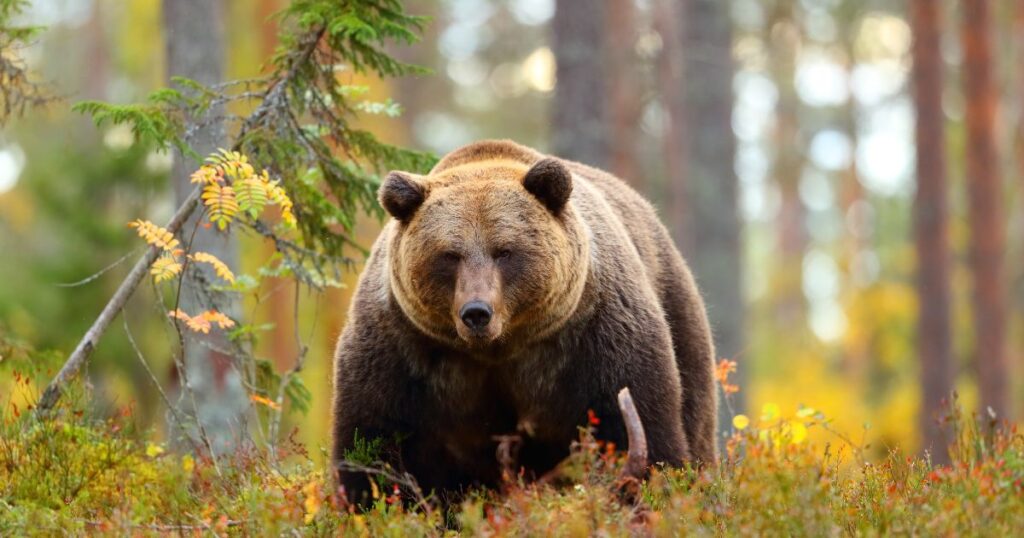
Positive Environmental News – October 2024
Between fat bears and clean energy projects, October had some unique positive environmental news for us.
Biden signs off on major clean energy projects
The Biden Administration signed off billions of dollars for clean energy projects, including approving major offshore wind projects.
A herd of wild bulls could help store carbon in the Scottish Highlands
By 2026, a herd of wild bulls will be introduced to Scotland’s Highlands to help restore biodiversity, store carbon, and enhance eco-tourism.
Brown bear wins Fat Bear Contest for the second time
Brown bear 128 Grazer is officially a two-time champion, taking home the crown in this year’s Fat Bear Contest at Alaska’s Katmai National park.
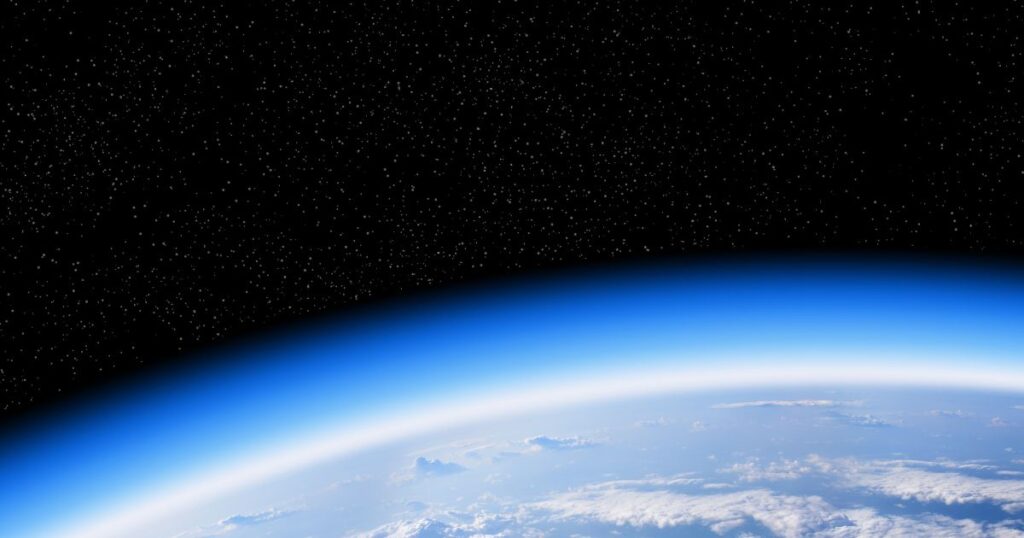
Positive Environmental News – September 2024
From ozone layer recovery to biodiversity restoration, September is full of positive environmental news.
Earth’s ozone layer is on track to fully recover sooner than expected
The United Nations Environment Programme (UNEP) recently announced that, if current efforts remain on track, the ozone layer — Earth’s natural protective barrier — could achieve full recovery in certain regions by the 2030s.
African nations launch a $500 million initiative to restore biodiversity
At Climate Week NYC, eleven African nations launched the Miombo Restoration Alliance, a $500 million initiative led by the ICCF Group, Trafigura, and Conservation International, aiming to restore biodiversity, combat land degradation, and support sustainable livelihoods across Africa’s Miombo woodlands.
A UK food producer is aiming for net zero by 2040
A major UK food producer has launched a two-year carbon reduction pilot to enhance soil health and biodiversity on its pig and poultry farms using carbon sequestration, habitat restoration, and cutting-edge technology, aiming for net zero by 2040 and setting a sustainability standard in the agri-food industry.

Positive Environmental News – August 2024
Ant amputations and drought-ending discoveries, all featured in August’s positive environmental news stories.
Australian scientists have come up with a way to stop deadly toads from poisoning crocodiles
Imported from South America in the 1930s, cane toads have been poisoning native wildlife in Australia for decades, including crocodiles who see them as a snack. Luckily, scientists and Indigenous rangers plan to train crocodiles to stop chowing down through taste aversion.
Hidden water reserve discovered in Sicily
A freshwater reserve twice the size of Lock Ness was discovered beneath the the Iblei Mountains. It is believed to contain roughly 17 billion cubic metres of water, and could be the solution to Sicily’s ongoing drought.
Ants conduct life-saving amputations, just as humans do
A new study finds that carpenter ants will perform amputations on nestmates to save their lives. This medical intervention was previously thought to be a human-only procedure. Roughly 90% of amputated ants survive the treatment and resume their duties in the nest.

Positive Environmental News – July 2024
Royal goats and GPS-tracking buoys, July had some unique positive environmental news stories for us.
King Charles III gives royal title to endangered goats
King Charles III has bestowed a royal title on an endangered golden goat breed, highlighting their historical significance and value in biodiversity.
Over 130 companies call on world leaders to follow through on their pledges
H&M Group, Unilever, and Nestle are among the companies who issued a call to action ahead of the annual biodiversity gatherings scheduled by the United Nations. The companies are demanding that world leaders follow through with their pledges to halt nature’s deterioration and restore biodiversity.
Polar bear tracking could boost conservation efforts
To understand how polar bears are adapting and coping with disappearing sea ice, scientists have developed a stick-on GPS tracking tag. The research team developing this device stem from University of Alberta, York University, Manitoba Sustainable Development, Ontario Ministry of Natural Resources and Forestry, Environment and Climate Change Canada, and Polar Bears International.
Tiger populations are steadily recovering in Thailand
Ranger patrols were increased to deter poaching and restore key habitats in Thailand’s Western Forest Complex. Thanks to their efforts, tiger populations are growing. This is complemented by the mirrored increase in their prey populations.
The first hydrogen-powered passenger ferry begins service July 29th
The first-of-its-kind passenger ferry will operate out of San Francisco Bay, with plans to phase out diesel-powered vessels and reduce carbon emissions. If the ferry runs successfully, we can expect more vessels to follow.
GPS-tracking buoys to protect turtles from ghost nets
Ghost nets are abandoned fishing nets that drift unseen through ocean waters, ensnaring turtles and other sea creatures. Hi-Tech buoys that washed up on the coast of Australia will be redeployed with the goal of finding and hooking onto these nets. So far, three ghost nets have been tagged and removed from the water.
The first baby beaver in Northumberland in over 400 years
The National Trust is celebrating the birth of a baby beaver in Northumberland. The birth comes one year after their reintroduction and is the first birth in over 400 years.
Deforestation in Columbia at a historic low
Deforestation in Columbia dropped 36% in 2023 after years of campaigning by Indigenous activists who seek to protect the Amazon, their homes, and livelihoods.
LEGO launches its Supplier Sustainability Program
Going forward, LEGO will require that suppliers provide the carbon footprint of any products or services being sold to the toy giant. LEGO is also setting goals to reduce product production emissions by 2026.
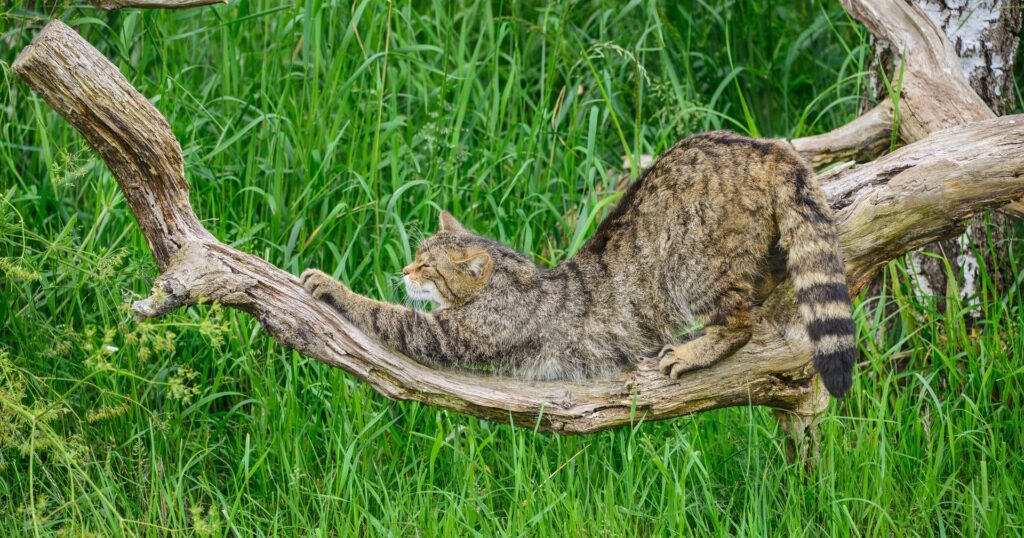
Positive Environmental News – June 2024
With the recovery of endangered species and new clean energy investments, June is full of positive environmental news!
Scottish wildcat kittens are born in national park
Scottish wildcat kittens were born in Cairngorms National Park. These cats are the only native member of the cat family still found in the wild in Britain, and this birth brings hope that the species can bounce back from the verge of extinction.
USA sets record with largest investment in clean energy
Private investors in the US dropped $71B into clean energy and electric vehicles in the first quarter of the year. This is a 40% increase compared to Q1 2023.
The Vatican goes green with solar energy
The Pope has announced a new solar plant to power Vatican City. To achieve this, solar panels will be installed on Vatican-owned property outside of Rome.
Hawaii to curb pollution from transportation system
Young climate activists have achieved a landmark victory with a settlement in Hawaii. The claim asserted that the state had breached the constitution by maintaining a transportation system that negatively impacted the climate, thereby violating their right to a clean and healthy environment.
A robotic fleet of marine trash collectors to handle invasive weeds
The new fleet of Clear Robotics marine trash collectors can collect up to 440lbs of floating trash per hour, with a storage capacity of 1102lbs. It can also be equipped with a towing barge, bringing its per-trip capacity to 3307lbs. The fleet will now take on invasive weeds along with floating plastic.
The Iberian lynx is now a recovering species no longer on the verge of extinction
The Iberian lynx was classified as endangered by the International Union for Conservation of Nature. But, thanks to successful conservation efforts, the IUCN has declared that it’s no longer an endangered species.
EU approves first-ever law that could bring back biodiversity
The EU’s Nature Restoration Law has officially been approved. This groundbreaking regulation is designed to rehabilitate Europe’s ecosystems and biodiversity. Its goal is to revive at least 20% of the EU’s terrestrial and marine environments by 2030, with the ambition to restore all ecosystems by 2050.
Saving the extremely rare Munoa’s Pampas cat
Conservationists are putting together a plan to save the Munoa’s Pampas cat, the most endangered of its kind. With less than 100 cats left in the wild, conservationists plan to breed them in captivity to help the species bounce back from the verge of extinction.
Rare wild Przewalski’s horses saved from extinction
Wild Przewalski’s horses have returned to Kazakhstan’s Golden Steppe for the first time in two centuries. These are the last wild horses left on Earth after their habitats were wiped out by agriculture and other human activities. Prague Zoo has successfully reintroduced them to their ancestral grasslands in Central Asia.
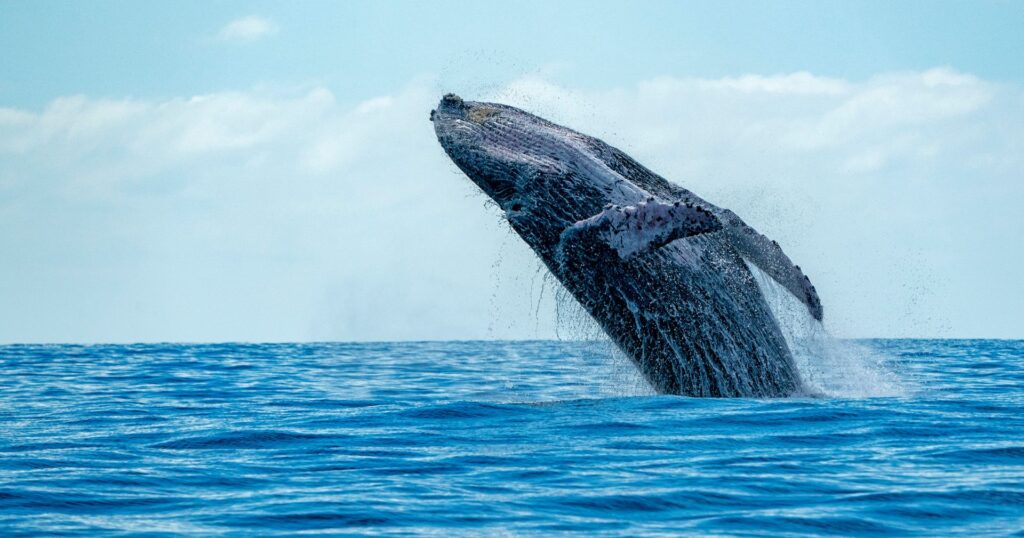
Positive Environmental News 2024 – May
Recovering species galore in May’s list of positive news!
Free public transport in Montpellier increases trips
Starting last December, Montpellier, a French city, made public transport free, and has seen a 20% increase in public transport users.
Scientists find what could be first nursery for hammerhead sharks
The first known smooth hammerhead shark nursery was discovered in the Galapagos. The shark species is rarely seen in the marine reserve.
Sei whales return to their ancestral home after a century away
The large whales have returned to the waters of Argentina after overhunting during the 1920s and 30s drove them away.
Wildlife makes full recovery in Kenya
After a historic worst-ever drought, the ongoing rains have brought relief to Kenya, with wildlife and ecosystems making a full recovery.
Blue whales may make a return to Antartica
A twenty year study of whale calls suggests that blue whales may be returning and recovering in Antarctica after being hunted to near-extiction.
Antwerp is giving away free trees to residents
The initiative called Neighbourhood In Bloom seeks to encourage citizens to plant trees in gardens and unpaved spaces, creating a green city.
Bison in Romania are helping carbon capture
A rewilding project that reintroduced a herd of 170 European Bison in Romania’s Tarcu mountains could help capture the carbon equivalent of 84,000 US cars per year.
Renewable energy now accounts for the majority of India’s energy
Coal no longer makes up the majority of India’s energy, with renewable energy accounting for over 70% of newly added power generation. India ranks third globally for solar power generation.
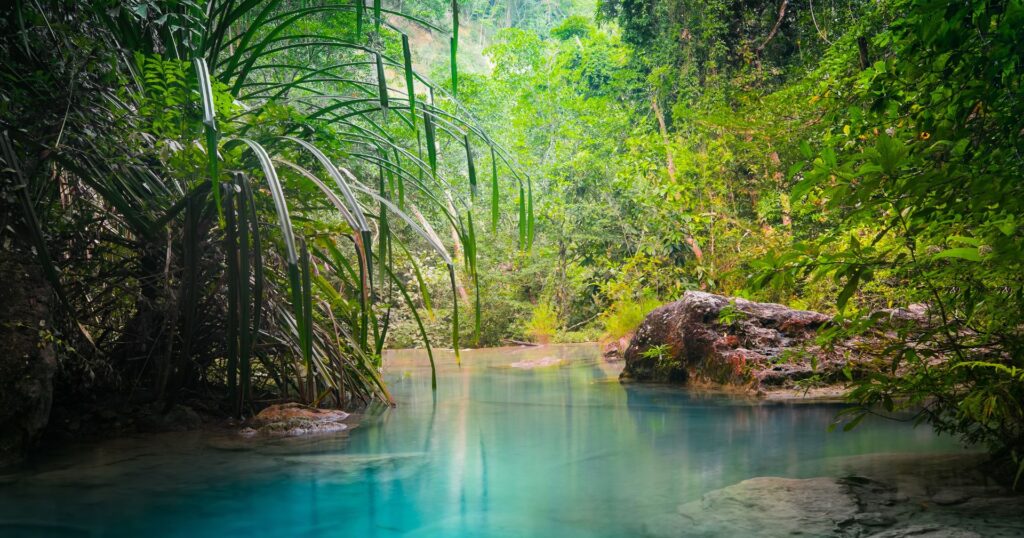
Positive Environmental News 2024 – April
April’s positive environmental news features great stories about land ownership and renewable energy use.
British Columbia, Canada, acknowledges that 200 islands belong to Indigenous communities
First-ever agreement saw BC acknowledge that 200 islands are owned by the Haida nation. Going further, they agree that the islands have never belonged to the Canadian government.
US emission reduction rate has doubled since the Inflation Reduction Act
Clean energy and transportation investment in the US has increased a record-breaking 40% between 2022 and 2023.
Women-led solar entrepreneurs improving electricity access in rural Nigeria
Renewable energy startup REES is advocating for climate action and providing clean energy to thousands of people in poor communities. Nigeria has the lowest access to electricity in the world.
First Nations are restoring one of the world’s oldest tropical rainforests in Australia
The Eastern Kuku Yalanji tribe in North Queensland is focusing on protecting the oldest surviving tropical rainforest. They’re educating the community about connections between nature and our health.
Workplaces in Wales now required to sort their waste
New law requires that Welsh businesses, charities, and the public sector sort and recycle their waste, including compost, to reduce waste sent to landfill.
Old cattle farm to protect endangered birds
Following a fundraising campaign, the Australia Nature Foundation purchased an old cattle farm in South Australia that will help protect the endangered malleefowl.
US introduces its first regulations to limit PFAS in drinking water
The Environmental Protection Agency has implemented regulations to monitor and limit quantities of forever chemicals in drinking water.
Landmark ruling in India includes climate impacts in right to life
India’s supreme court ruled that the right to life can’t be realized without a clean environment, including protections against the dangers of climate change.
Driving is the least preferred mode of transportation in Paris
53.3% of people prefer walking, 30% prefer public transportation, 11.2% cycle, and only 4.3% drive to their destination.
Wolves appear in Nevada for the first time in nearly a decade
Wolves were discovered by Nevada’s Department for Wildlife in Elko County for the first time in 8 years.
Seven countries generate all electricity from renewables
Albania, Bhutan, Democratic Republic of Congo, Ethiopia, Iceland, Nepal, and Paraguay all generate enough electricity from renewables.
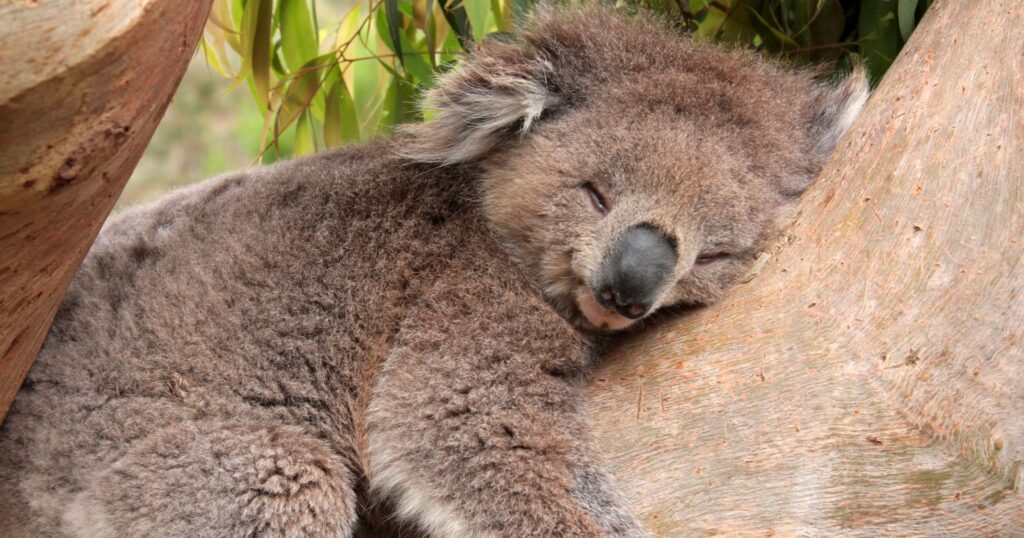
Positive Environmental News 2024 – March
March was full of positive news. From the growth of endangered species populations to green legislation, we’ve got it all below.
Canada seeks to protect its newly discovered coral reef
With the help of First Nations, Canada identified its only living coral reef. It’s the northernmost reef ever discovered in the Pacific Ocean, just off the coast of BC, and the country is protecting it by banning bottom-contact fishing.
Private jets are getting taxed
A new Biden proposal would see a 400% fuel tax increase for polluting private jets. This was pitched as a fairness issue as airline passengers pay special taxes on every ticket.
France is looking to crackdown on fast fashion
Adverts for fast fashion may soon be banned in France in a new bill that seeks to ease the industry’s pollution. The policy also looks to impose penalties on low-cost clothing to compensate for its environmental impact.
Finches linked to Darwin’s theory of evolution are back in the Galapagos Islands
Experts have been working since 2023 to eradicate species that have been causing the disappearance of many native species in the Galapagos. They have finally reintroduced a flock of finches to the area.
The EU’s Nature Restoration Law
The European Parliament has passed a law that aims to rehabilitate at least 20% of the EU’s land and sea by 2030, and all degraded ecosystems by 2050. As of today, 81% of their habitats are in poor condition.
New York City has announced 260,000 green jobs
These jobs will be created over the next 15 years, prioritizing training New Yorkers from environmentally disadvantaged communities.
Koalas are returning to Brisbane brushlands
Brisbane and the University of Queensland are partnering up to reintroduce and monitor koalas over the next four years to strengthen their populations.
The EU has criminalized ecocide
Crimes such as habitat loss, illegal logging, and pollution could see CEOs sentenced up to 10 years in prison. Member states now have two years to implement it in national law.
Hawaii is introducing a climate fee on tourists
Hawaii has been suffering from over-tourism for years. Now the islands are introducing a $25 climate fee on all tourists to restore nature, protecting its beaches and preventing wildfires.
Washington joins California and Hawaii in banning octopus farming
The world’s first-ever legislation banning octopus farming was passed by the Washington State Senate.
Wild panda populations have almost doubled in China
China’s efforts to protect their pandas are paying off as the population of giant pandas in the wild has nearly doubled over the last 40 years.
Properties with no owners in Scotland will transfer to local communities
Local communities will be offered ownerless buildings or land worth up to £500,000 to encourage community ownership.
African tree planting project transforms degraded lands
Trees for the Future is working on replacing barren monocultures with forest. Since 2015, they have planted an area seven times the size of Manhattan.
Bald eagles have been spotted nesting in Toronto for the very first time
A pair of eagles are the first-ever recorded to nest in Toronto, showing that the city’s green spaces are healing after bans on insecticides and hunting.
Coral reef restoration is helping ecosystems recover
A new study shows that coral reefs can make a full recovery and grow at the same speed as healthy ones in as little as four years after coral transplantation.

Positive Environmental News 2024 – February
From protected areas to rescued endangered species, let’s take a look at all the positive environmental news from February.
Google will map methane emissions from space
The tech giant is backing a satellite project launching in March. The satellite will orbit 300 miles around the Earth, 15 times per day, collecting data about methane levels.
Developers in England must create wildlife habitats
England’s latest environmental policy will require new developments to provide a 10% net gain in biodiversity that is maintained for at least 30 years. This includes new homes, roads, railways, and solar farms.
New Zealand opens kiwi hospital
New Zealand has opened a hospital specifically to treat kiwi birds. Their first patient, a chick named Splash, has already been nursed back to health after falling into a swimming pool.
Mexico announces 20 new protected areas across 12 states
Mexico’s government announced 20 new protected areas across 12 states and two coastal areas, spanning roughly 5.7 million acres.
The National Trust will plant over 100,000 trees in Devon
The large-scale project will re-establish approximately 123 acres of the UK’s most endangered habitats: the temperate rainforest.
The sale and supply of disposable vapes will be banned in England, Scotland, and Wales. Part of the reason is to reduce the appeal vapes have on the younger generation.
Alabama’s wetlands were purchased for conservation and saved from logging
“America’s Amazon,” over 8000 acres of wetlands, was purchased for conservation for $15 million. The owners sold to The Nature Conservatory instead of to a buyer who planned to log and sell timber.
EU to force cosmetic companies to clean up pollution
Cosmetics companies will have to pay to reduce microplastic water pollution, covering 80% of the extra clean-up costs.
New Zealand to ban PFAS in cosmetics
Starting at the tail end of 2027, businesses can no longer sell or supply cosmetics containing PFAS within New Zealand. By June 2028, all cosmetics containing PFAS must be disposed of.
India’s tiger reserve becomes their first Dark Sky Park
The Pench Tiger Reserve earned its title for preventing light pollution and protecting the night sky. It has become a place for astronomy fans to view a sky full of stars.
Oregon Zoo releases endangered Condors back into the wild
Oregon Zoo hatched, raised, and released seven California condors. There are only 500 of these critically endangered birds left in the wild.
Spain to introduce seven new Marine Protected Areas
Spain is introducing seven new Marine Protected Areas, increasing their protected waters from 12% to 21%.
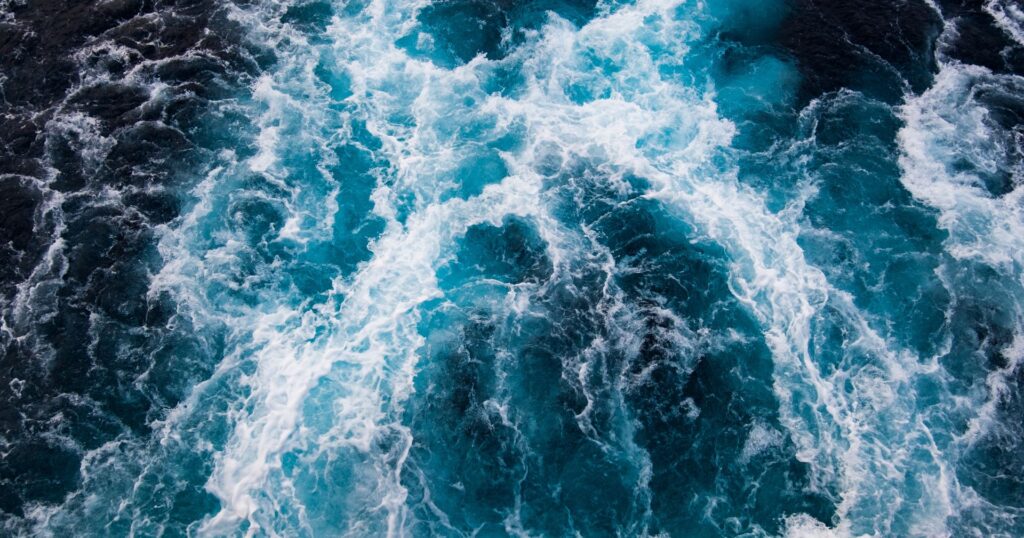
Positive Environmental News 2024 – January
Elephants, octopuses, and rhinos – here’s all the positive environmental news that January had to offer.
Canada will require all new cars be zero-emission by 2035
The Government of Canada has committed to achieving 100% zero-emission vehicle sales by 2035, with interim goals of at least 20% by 2026 and 60% by 2030.
Amazon deforestation in Brazil dropped 50% in 2023
Compared to 2022, the rate of deforestation dropped 50% in the Amazon, with the environment ministry declaring it was the lowest recorded deforestation rate in the last five years.
Denmark to introduce green tax on flights from 2025
The new tax on air passengers was approved by the Danish government, with the goal to help fund the transition to sustainable aviation fuel by 2030.
World’s renewable energy capacity has grown 50%
2023 saw the world add 50% more renewable capacity than the previous year, with a projection that the next 5 years will see the fastest growth yet.
First successful embryo transfer in rhinos
Scientists may be able to save the nearly extinct northern white rhino species through IVF. The surrogate mother rhino is roughly 70 days pregnant.
Elephant populations have stabilized in southern Africa
Researchers found that conservation has stopped the decline of elephants in southern Africa, with populations growing 0.16% per year over the last quarter century.
New study finds that plastic bag bans are working
A new report from Environment America, Frontier Group, and US Public Interest Research Group Education Fund shows that plastic bag bans eliminate roughly 300 single-use plastic bags per person per year.
The EU will ban misleading climate-neutral terms, eradicating greenwashing from labelling and ads. These terms include “eco-friendly,” “biodegradable,” and “climate neutral.”
Scientists discover new octopus species
Scientists off the coast of Costa Rica have discovered at least four new species of octopus, spanning an area approximately 260sqkm.
France implements mandatory composting
France has declared that organic waste recycling is now mandatory. The waste will be turned into biogas or composted to replace chemical fertilizers.
Palau becomes first nation to ratify the UN Ocean Treaty
Palau will ratify the high seas treaty, seeking to project and manage marine areas beyond national jurisdiction. Chile and the Maldives are on the cusp of ratifying, with a total of 60 nations needed for the treaty to take full effect.
First large-scale offshore wind project launches in the US
Located off the coast of Massachusetts, the first large-scale offshore wind turbine has begun to deliver roughly 5MW of power to New England.
Read More: Positive Environmental News (2023)



